#DSLR photography for beginners
Explore tagged Tumblr posts
Text
Cat Photography: Pet Photography Tips and Camera Settings for Better Cat Portraits
‘Until one has loved an animal, a part of one’s soul remains unawakened’ ~ Anatole France They say, the experience of loving and caring for an animal awakens a deep and essential part of our being, enriching our lives in ways that are difficult to describe. I didn’t realise this until I met my friend’s pet, the cute kitten ‘Cheeku’! Pets are great companions with whom we can converse and share…
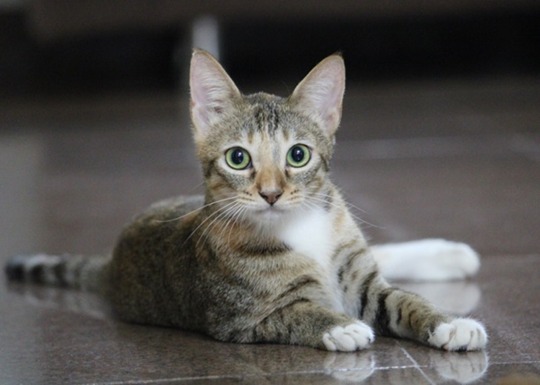
View On WordPress
#cat photography#DSLR photography for beginners#DSLR photography tutorials#learn photography#pet photography#pet photography camera settings#pet photography tips#Photography#photography for beginners#photography tutorials
1 note
·
View note
Text
pulling out my old canon eos rebel t1i camera and knowing it is more than 10 years old hurts me. it was brand new and exiting when i got it one year for my birthday. the thought makes me feel like an old man.
2 notes
·
View notes
Text
Canon T7 vs Canon T100: Which Budget DSLR Should You
Actually Buy? Spoiler alert: If you’re reading this because you’re overwhelmed, broke-ish, and low-key scared of buying the wrong camera—you’re in the right place. If you are like me, you research everything you buy, but if its a “bigger” purchase, You don’t want to regret it, or have mom guilt. Let’s talk Canon T7 vs Canon T100. These two are like siblings in a rom-com. They look alike, and…
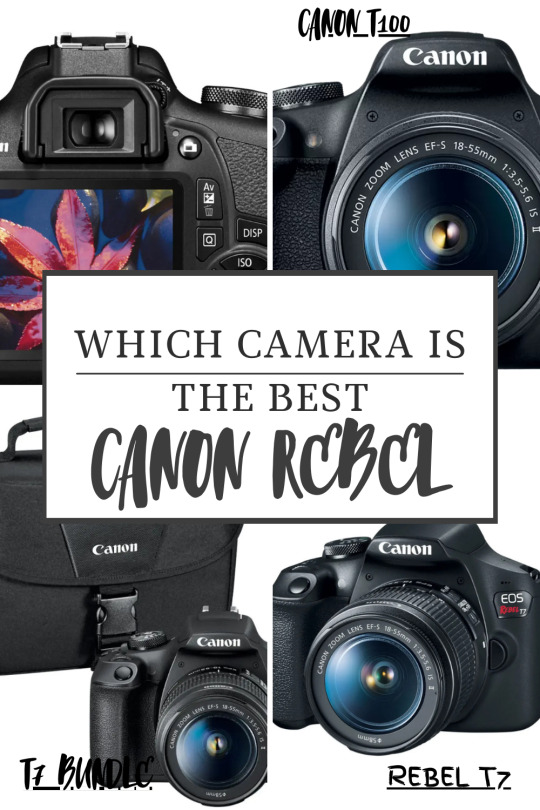
View On WordPress
#Budget#affiliate#affiliatemarketing#affiliatemarketingtools#beginner DSLR#Beginnerphotography#Best Budget DSLR 2025#blog#BudgetDSLR#Camera#cameracomparison#Canon T100#Canon T7 Review#Canonreview#Comparison#Content Creator#Creator#dailyprompt#Investment#marketing#mom#Momlife#new creator#Photography#Rebel#WifiCamera
0 notes
Text
Read our detailed review of the Canon EOS Rebel T7i DSLR Camera. Perfect for beginners, this camera offers high-resolution imaging, fast autofocus, and user-friendly features for stunning photography.

View On WordPress
1 note
·
View note
Text
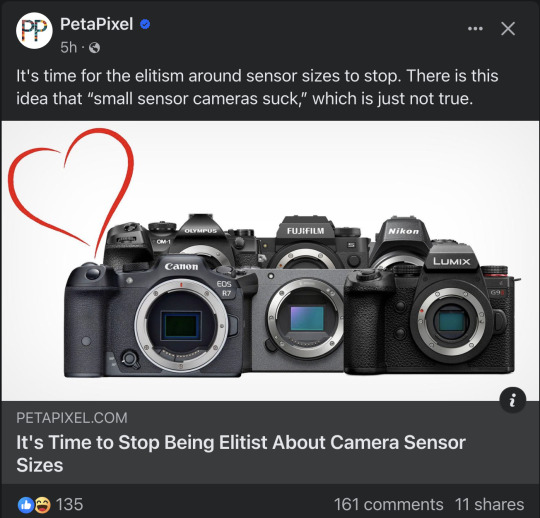
This article gets rewritten about every 3 months by someone who thinks they are writing it for the first time.
Also, no chance I am going into that comment section.
I'll make it very simple. Pretty much all cameras are great now. Most smartphone cameras are great.
So you can get great photos with *any* sensor size.
You just have to assess your needs and decide which system will help you achieve your photographic goals.
Full frame sensors make it much easier to...
Shoot in cramped spaces. Get background blur. Shoot a scene with bright brights and dark darks. (dynamic range) Shoot in low light with less noise.
APS-C sensors...
Slightly harder to get background blur. Not as good in cramped spaces. Slightly less dynamic range. Slightly more noise in low light. Give you near full frame quality at a lower price point.
Micro 4/3 sensors...
Give you lightweight and portable gear while maintaining the advantage of using different lenses. Can be more expensive. Great for beginner videography. Can do decent background blur with a speedbooster and fast lens. Give you a nice bump in quality over smartphones in challenging circumstances.
Smartphone sensors...
Are always in your pocket.
If you have the money and want to make getting good photos in challenging circumstances easier, get a full frame. Used full frame DSLRs are cheaper than they have ever been.
If you are on a tight budget and want everything a full frame does but don't mind it being about 1.5x harder to do so, get APS-C. If you go with Canon or Nikon, you can choose your lenses in a way that allows you to upgrade to full frame later on.
If you want to use a proper camera with interchangeable lenses but you don't feel like carrying a heavy camera bag with you everywhere, get a micro 4/3. Be warned, these cameras are usually more expensive than APS-C. They often have cool retro styling and try to give you a more fun photography experience. Panasonic M4/3 can be a great entry level videography camera. Fuji has some neat retro film emulation. Speedbooster accessories can allow you to retain some reasonable background blur.
For everything else, just use your phone because phones are great at everything except indoor low light situations.
87 notes
·
View notes
Text
Camera Gear for the Low-Spoons Photographer
YOU DON'T HAVE TO TAKE MY WORD FOR IT, but I have rheumatoid arthritis, chronic vertigo, and a host of less-related autoimmune situationships that I've learned to work with and around over the years. When I first got my telephoto lens, holding the camera long enough to find and photograph owls would leave my hands swollen for hours. I do a lot better now.
A few notes: I'm leaving out my various lenses and filters and such, since those aren't directly related to coping with chronic pain. But if there's any interest, I can share those another time. + Nothing I recommend below is an affiliate link. Not that there's anything wrong with that, but this is just me sharing hopefully helpful things.
And: some of this stuff is expensive. I've been accumulating gear for many years. Prioritize what you need most for health and joy, and build out your kit as you go along, upgrading down the line if needed.
under the cut: PERSONAL GEAR, CAMERA GEAR, BONUS GEAR
✱ PERSONAL GEAR
Compression gloves. The MVP of hanging on to a camera without swelling/pain. I don't find that I need gloves with grips, but you might prefer it.
Photography gloves. But if you're going out in really serious winter weather, you'll want glove liners or compression gloves + fold-back mittens, instead.
Wrist wraps (over the top of the compression gloves works great). I guess mine are discontinued, but for what its worth, this is what I use.
Rechargeable hand warmers. Again, mine doesn't seem to exist anymore, but this looks like its successor. Get one for each pocket unless you have...
A heated vest
And this goes without saying, but find really good boots that don't bother your ankles. These are my go-to; YMMV. (Pair them with really good socks.)
✱ CAMERA GEAR
Panasonic Lumix GH7. Micro four-thirds cameras and their lenses are smaller and lighter than full frame mirrorless/DSLRs, which is better for my RA needs. It's also less expensive.
But, note that I started out (post-film) with the Canon M-series, a smaller, more affordable option which you can still buy used. Great for beginners. (I'm not sure what Canon replaced the M50s with.)
Camera strap. Personally, I like a cross-body setup. It doesn't bother my collar bones as much, and doesn't bother my neck at all. You can get cheaper ones than mine. I use it often enough that I wanted to be as comfortable as possible, and I want to be able to quickly switch between a strap and a tripod (otherwise I don't use my tripod enough). I've given away a lot of bad camera straps, so I chose to upgrade.
Camera bag. I won't link to mine (though I love it), because it was wildly self-indulgent and I don't want to suggest you have to buy something expensive to make it work! For daily use, I use a medium-sized sling bag because I change lenses often, and this lets me swap without setting all of my gear down on the ground.
Camera backpack. If I'm going further afield, I'll switch to a backpack for shoulder pain, but I don't love mine for how inaccessible my gear is. I do have to set everything down with this one. I've been reliably recommended this bag, but I'm still looking for something that will fit my camera with the telephoto lens mounted. I'll let you know what I find!
Travel backpack. My collar bones get swollen and tender pretty easily, so for hiking I'll slide a camera cube into a proper backpack. This isn't my exact bag, but I think it's what replaced mine; my cube came with my camera backpack, but here's the kind of thing I mean. My smaller lenses fit (with soft cases) into the side pockets for easy access; you could use carabiners, but I don't prefer how insecure that feels.
(If I'm hiking, I've got walking sticks and knee compression sleeves, just for the record. In which case I tend not to also bring a tripod.)
Travel Tripod. Lightweight, super easy to use. Not heavy enough to withstand much wind, though.
Heavy Tripod. Harder to travel with, but worth it when conditions call for a more heavy-duty tripod, or one with a ball head (for better camera maneuverability). I keep mine in my coat closet for the owls. My travel tripod lives in the trunk of my car.
✱ BONUS GEAR: drones x accessibility
I really do recommend that if you have certain kinds of mobility or health issues, you consider getting a small drone (sUAV). I have a DJI Air 2S (which is being replaced by the 3S) which fits into a neat little pack for easy carrying. And to support this recommendation, a story:
For our honeymoon, my spouse and I roadtripped to the Spiral Jetty at the Great Salt Lake (en route to the 2017 solar eclipse). It was August. It was hot. And my joints were bent out of shape from coming down from a week in Tahoe, and I have history of seizures which can be triggered by heat, and as we walked further and further out I started feeling quite ill.
Since I did not want to have a Problem out there in the middle of nowhere, I walked back up to the parking lot and launched my small, quiet, unobtrusive DJI Spark from the tailgate of my car. I am one of those photographers who is very self-conscious about flying around people who may be bothered by it, which is why I'm clarifying small and quiet. There were very few people anyway, but at elevation, no one even knew it was there.
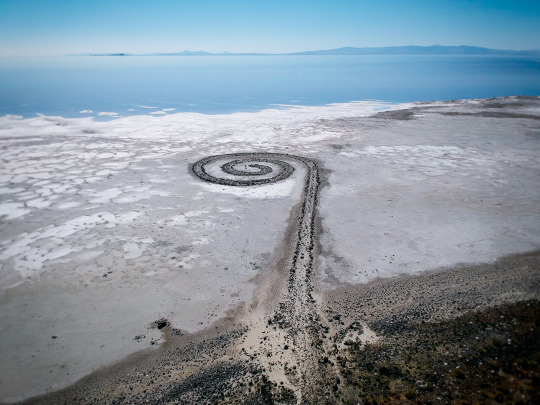
(The person in the center of the spiral is my spouse!)
Of course, if you're a National Parks nerd, you know that you can't fly in the parks. But, as with the Spiral Jetty, there are many beautiful places you can still go. And if you get out there and can't go very far, or you're just having a bad day, with a drone you still have options. And that means so much to me that my company is trying to form a nonprofit to help people like me get set up with non-commercial sUAVs. We'll see where that goes.
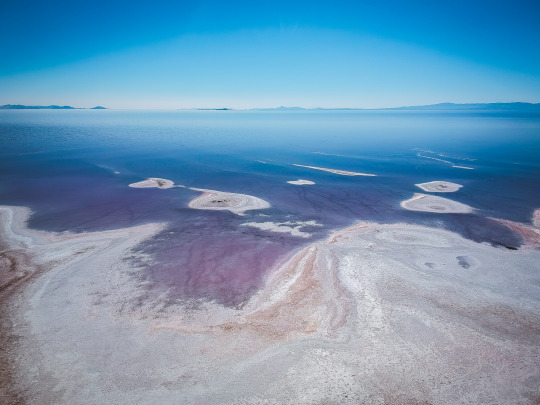
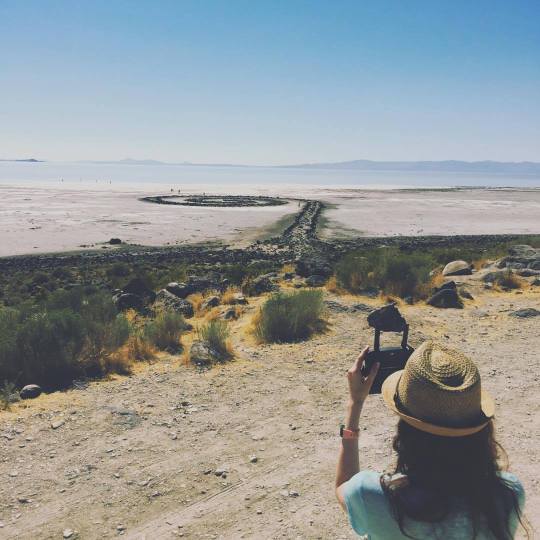
Don't worry, you don't have to hold the controller aloft like this. I was still setting up, didn't know I was being photographed.
These were taken a million years ago with an old, now-discontinued drone that only shot in JPG, because of how small it was. I've flown FPV drones since then, which does tend to trigger my vertigo, but I can see the incredible possibilities for being able to experience a place you can't physically get to, or only in limited ways -- because you could at least have these immersive goggles and a small aircraft to get you there. You know? It's not nothing. (But, of course, it's not for everyone.)
That's it! As always, feel free to drop a note in my ask box. And if anyone is interested in my editing gear, I can make a separate post for that, too. ✌
#photography#photographers on tumblr#lensblr#on photography#accessible photography#chronic pain#chronic fatigue#invisible illness#rheumatoid arthritis#camera gear#nature photography
21 notes
·
View notes
Text
Lets talk about Wildlife Photography
I think social media makes it a hard thing to get into. Amazing locations are shown, awesome gear, and fit people that go on crazy long hikes.
I would like to share my perspective from someone that is far from well off. I feel it's easy to look at something online and wish for that life. I do it to often myself.
I started fully getting into wildlife photography myself around two years. I have both autoimmune and neurological issues so my hikes are often limited. When I do get out on hikes (usually only up to 2 miles at most) I can't do much else for a week. My gear is either pre owned or was financed over small payments. 95% of my photos were taken from my car.
Good places to look and when
(Some things may vary from state to state all of my opinions are formed from my experiences)
First off timing, dusk and dawn. Timing it out where the animals are out and you still have good lighting is rough. Preferably, you would like every animal to be out during golden hour, but that often doesn't happen.
Try finding Facebook groups for any refuge or park to get an idea of where and when the animals may be at your local parks.
Wildlife refuges are a great place to look for animals, but can be limited on access and be a bit more seasonal. You'll almost always see atleast one animal, but timing out when the animals you are looking for tend to hangout here may take a bit. For instance the elk at my local refuge winter here but are basically non-existent in the summer.
County roads are a great place to cruise around looking for wildlife. The farms tend to hold deer. Especially if your in an area that grows alot of corn 🌽. They can also have a ton of pronghorn if you live in the prairie.
Neighborhood parks. Especially with mule deer, I find more bucks wandering neighborhoods than the back country. These parks tend to be great for some of the more common birds as well.
National parks, State Parks, and National Forests are always wonderful places to find wildlife. Depending on location, they can be far and few. There's usually more info about animal locations for these. Whether that be social media groups or large groups of stopped cars when your in the park.
You'll probably have to drive a bit unless your in a prime location. My favorite place to see wildlife is 2 hours away.
Frequency
You will have amazing days that feel like pure magic with a bounty of awesome opportunities. Then you will have a week or weeks where you don't see anything. Maybe you do see an animal, but they are in a junkyard, too far away, or the lighting is just too bad and they aren't there the next morning. You will be frustrated, and no matter how much you think you know these animals and their habitats. They are still wild animals. Maybe it was a warmer winter or the hunting pressure that year was higher? Either way, there are times you just don't get lucky.
Gear
Start with something beginner friendly don't jump into a super high end DSLR. They are complicated and can be very confusing. I would recommend a D3300 or something from that series. You can find some on eBay with lenses for around $300. The 55-200mm kit lens it often comes with is a wonderful lens to start off with.
Practice
It's good to practice on domestic animals. Whether that be your pet cat or a horse alongside the road. I did horse photography for years before I got into wildlife photography. Going to horse shows can be a great way to practice motion shots and get a feel for your settings. Oftentimes, with wildlife the opportunity window for a shot is only seconds.
There's a ton of wonderful camera specific help if you look up your camera model with the word "guide" "help" or "tips" on YouTube.
Nikon Teaching Photography on Facebook is an abundant resource. There's many wonderful camera help groups on Facebook.
Random tips
Write down everything and try to put an answer to these questions in the summary. What animal did you see? what time was it? what day? how cold was it?
Some animals are creatures of habitat, and others tend to be more random. For me, my local elk tend to generally stick to more of a schedule, and the mule deer are pure chaos lol.
Bring basic survival items in your car if you plan on heading out into the back country. Extra food, water, battery packs, jumper cables, a shovel, first aid kit.
It's better to turn around than to be stuck miles back into the forest without service. The super muddy or snowy trail isn't worth it unless you plan on walking it.
12 notes
·
View notes
Note
What is a good beginning camera for someone? I want to be able to take my own photos to paint and draw.
For what you're doing, anything within your budget is a good camera.
Point and shoots are good! I still use my Nikon Coolpix and my dad uses Canon Powershot. These ones are more for people who are playing around with it and don't necessarily need to shoot in Manual, but the Powershots on the high-end do have manual settings if you're interested in learning how to use it.
(I like cameras with Manual options because now that I know how to shoot in Manual mode it gives me a lot of creative freedom that auto and presets do not have. But if you don't know Manual and want to learn, there is a rather frustrating learning curve that a lot of people struggle to get over. Just be prepared for that.)
If you're interested in learning photography and want something a little above the point and shoots, my first DSLR was a Canon Rebel (I think it was a Rebel 3). It still has presets and auto functions, but its the middle ground between beginner and pro.
You might get a good deal on DSLR cameras soon because most companies are going mirrorless and the mirrored cameras are becoming obsolete.
I'm going to tell you this: the cheaper the camera, the worse it will be at shooting dark scenes. That's pretty much where most of the money goes towards in development.
So if you're looking to take pictures outside or in well-lit places or with an built-in flash, then you may be happy with a point and shoot.
If you're looking to be in more challenging places, like indoor places that aren't terribly well lit, then a DSLR might be a good place to start. The Rebel I used to use was great for doing candids inside schools. You can also use an external flash with DSLR cameras, if you're feeling ambitious.
Anything priced higher than that is going to be able to do all of these things AND be able to take photos in poorly lit bars. My Canon Mark II just about struggles in dark places, but you can still get some cool looks if you know how to work your exposure settings (-grumbles in photographer-)
41 notes
·
View notes
Text
✨ help a queer disabled creature out ✨
hiii! this is my first time making one of these so i don't really know what i'm doing but please bear with me!!
my name is neptune and i'm queer and disabled. i have ADHD, depression+anxiety and a chronic eye condition that leaves me with only one seeing eye (and with high eye pressure in my blind eye, which is occasionally painful and gives me headaches). i am also trans and currently pursuing HRT, which where i'm from means i first have to travel all over the country to a bunch of different specialists who need to determine whether i am Transsexual™ enough (which costs money).
i am employed, but i work at an NGO, which, coupled with the fact that i can't work there full-time due to my disabilities, means i'm basically making a little above my country's minimum wage (converted to USD – i'm from central-eastern europe – i make roughly $810/month after tax). nearly half of my monthly income goes towards my rent, and this makes it very hard for me to save up money, especially given the so-called ADHD tax (look it up if you haven't heard of it).
as you can probably imagine, this is very stressful. i am privileged in that i am not in an immediately dire financial situation and have a solid support network, unlike a lot of other people on here. however, i live with constant financial anxiety. i have no safety cushion with which to cover longer periods of potential illness/recovery (e.g. after top surgery, which i might want), potential health emergencies of my two beloved cats (one of whom is a senior cat), or unexpected household expenses. i also have very little disposable income, which is not immediately a disaster, but which has gotten me into a difficult situation.
you see, one of the ways i can sustainably supplement my income is freelance photography and i would really benefit from making that a more regular thing. currently, however, the only camera i have at my disposal is a second-hand beginner level DSLR i got back in 2019, which is really beginning to struggle to keep up. this means i could really use a new camera so that i can take better photos and increase the chance of someone wanting to hire me. but cameras are expensive and there's no way i could comfortably afford even another second-hand one (the cost of a decent second-hand camera would be around $850).
sooo. i thought i could try my luck here? i'm not asking for any specific target amount and i will be happy for any help, no matter how small. i understand if you'd rather help out those who need it more urgently though! i know many of us hardly have the means to help even those.
if you do happen to have some spare change, though, here is my paypal. i'll be forever grateful!
thanks for reading 💜 adding a photo of me and my cats so you know i'm a real person i guess?
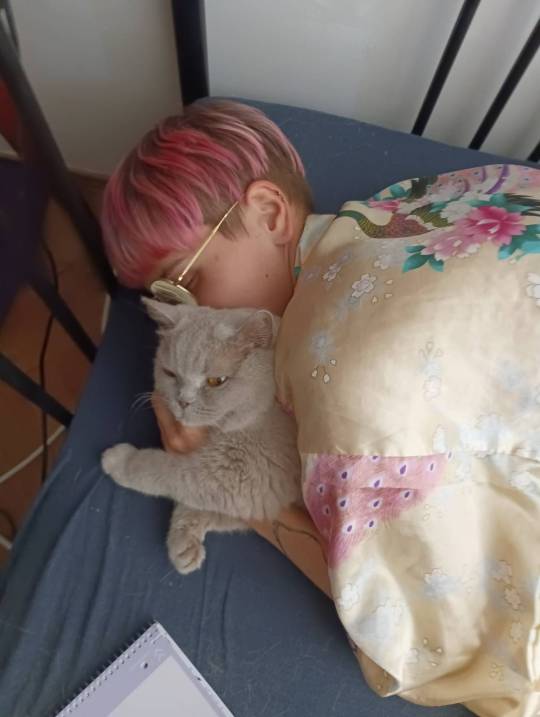
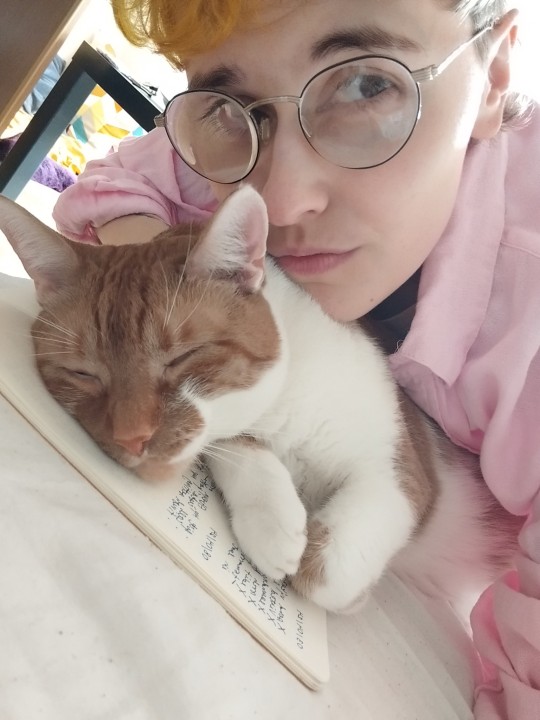
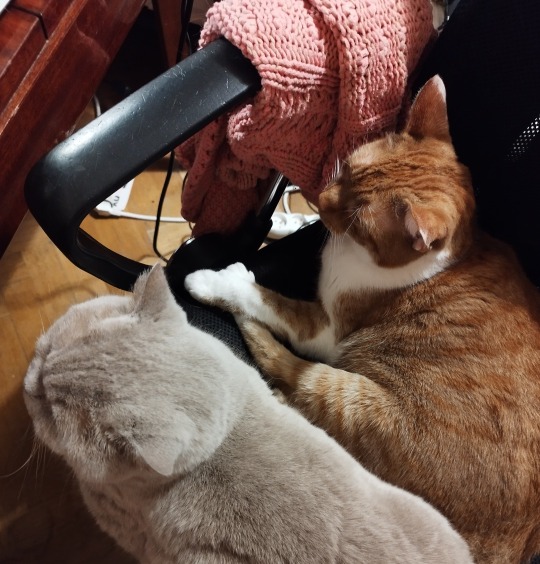
#mutual aid#donation request#queer mutual aid#neptalks#soz for this i'm just hella broke lmfaooo 🙏#if anyone knows of other ways to supplement my measly income that won't jeopardize my mental + physical health i'm open to suggestions 👍#disabled mutual aid#queer and disabled
38 notes
·
View notes
Text
Best DSLR Cameras for Professional & Beginner Photographers
If you're serious approximately images, investing in a incredible DSLR camera can extensively enhance your competencies and image great. DSLR cameras provide versatility, higher picture sensors, interchangeable lenses, and manual manipulate over settings. Whether you're a newbie or a professional, there may be a DSLR camera that suits your needs. In this guide, we will discover some of the great DSLR cameras to be had today, thinking about elements like performance, functions, and rate.
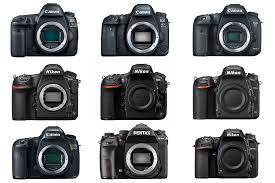
Best budget DSLR cameras for photography enthusiasts
1. Canon EOS 5D Mark IV
Why Choose It?
The Canon EOS 5D Mark IV is an tremendous choice for expert photographers who call for high resolution, surprising low-light performance, and rapid autofocus.
Key Features:
Sensor: 30.4MP Full-Frame CMOS Sensor
Autofocus: Dual Pixel CMOS AF with sixty one-point AF system
ISO Range: 100-32,000 (expandable to 50-102,400)
Burst Shooting: 7 fps
Video: 4K video recording
Connectivity: Built-in Wi-Fi, GPS, NFC
Pros:
✔ High picture resolution and element
✔ Excellent autofocus and occasional-mild overall performance
✔ Great dynamic variety
✔ 4K video functionality
Cons:
✖ Expensive
✖ Heavy body
✖ Crop element in 4K video mode
2. Nikon D850
Why Choose It?
The Nikon D850 is an extremely good all-rounder, offering a excessive-decision sensor, speedy capturing velocity, and brilliant dynamic range, making it best for both landscapes and action photography.
Key Features:
Sensor: forty five.7MP Full-Frame BSI CMOS Sensor
Autofocus: 153-factor AF system
ISO Range: 64-25,six hundred (expandable to 32-102,four hundred)
Burst Shooting: 9 fps
Video: 4K UHD recording at 30 fps
Connectivity: Bluetooth and Wi-Fi
Pros:
✔ Exceptional picture satisfactory and sharpness
✔ Long battery life
✔ Fast and accurate autofocus
✔ High ISO overall performance
Cons:
✖ No built-in flash
✖ Large and heavy
✖ High price tag
3. Canon EOS 90D
Why Choose It?
For those who want a flexible APS-C DSLR with high-pace overall performance, the Canon EOS 90D is a first rate choice, mainly for flora and fauna and sports activities images.
For those who want a flexible APS-C DSLR with high-pace overall performance, the Canon EOS 90D is a first rate choice, mainly for flora and fauna and sports activities images.
Key Features:
Sensor: 32.5MP APS-C CMOS Sensor
Autofocus: 45-factor all-go-type AF machine
ISO Range: one hundred-25,600
Burst Shooting: 10 fps
Video: 4K UHD without crop
Connectivity: Wi-Fi and Bluetooth
Pros:
✔ Excellent decision for an APS-C sensor
✔ Fast and reliable autofocus
✔ Great battery life
✔ Uncropped 4K video recording
Cons:
✖ No in-frame stabilization
✖ Limited dynamic range in comparison to full-frame cameras
four. Nikon D7500
Why Choose It?
The Nikon D7500 is a first-rate mid-range DSLR with superb photo pleasant, proper autofocus, and sturdy battery life, making it ideal for lovers.
Key Features:
Sensor: 20.9MP APS-C CMOS Sensor
Autofocus: fifty one-factor AF system
ISO Range: one hundred-51,2 hundred (expandable to 50-1,640,000)
Burst Shooting: eight fps
Video: 4K UHD at 30 fps
Connectivity: Wi-Fi and Bluetooth
Pros:
✔ Great low-light overall performance
✔ Fast and accurate autofocus
✔ Lightweight for a DSLR
✔ Good battery life
Cons:
✖ Only one SD card slot
✖ No vertical grip choice
five. Canon EOS Rebel T8i (850D)
Why Choose It?
For beginners looking for an affordable but characteristic-packed DSLR, the Canon EOS Rebel T8i is an extremely good entry-stage choice.
Key Features:
Sensor: 24.1MP APS-C CMOS Sensor
Autofocus: 45-factor all-cross-kind AF machine
ISO Range: one hundred-25,600
Burst Shooting: 7 fps
Video: 4K at 24 fps
Connectivity: Wi-Fi and Bluetooth
Pros:
✔ Affordable fee
✔ Easy-to-use controls
✔ Good autofocus for an access-degree DSLR
✔ Vari-attitude touchscreen
Cons:
✖ Limited dynamic range
✖ No in-frame stabilization
✖ Slow burst price in comparison to higher-quit models
6. Pentax K-1 Mark II
Why Choose It?
The Pentax K-1 Mark II is a unique full-frame DSLR that gives climate-sealed construction and built-in stabilization, making it ideal for out of doors photographers.
Key Features:
Sensor: 36.4MP Full-Frame CMOS Sensor
Autofocus: 33-point SAFOX 12 AF system
ISO Range: a hundred-819,2 hundred
Burst Shooting: four.Four fps
Video: Full HD 1080p at 30 fps
Connectivity: Wi-Fi and GPS
Pros:
✔ Excellent build nice with climate sealing
✔ In-body stabilization (uncommon for DSLRs)
✔ High ISO variety for low-mild images
✔ Unique AstroTracer function for night time sky pictures
Cons:
✖ Slower autofocus as compared to competitors
✖ Limited lens selection
✖ Lower video satisfactory than competitors
Choosing the Right DSLR for Your Needs
For Professionals: Canon EOS 5D Mark IV or Nikon D850 are first-rate picks.
For Enthusiasts: Nikon D7500 or Canon EOS 90D gives first rate balance in charge and capabilities.
For Beginners: Canon EOS Rebel T8i is a splendid entry-level digital camera.
For Outdoor and Adventure Photography: Pentax K-1 Mark II with its rugged frame and stabilization is good.
3 notes
·
View notes
Text
getting back into photography and relieving the moment all baby photographers experience in which you realize camera settings are entirely just you fucking around and finding out
1 note
·
View note
Text
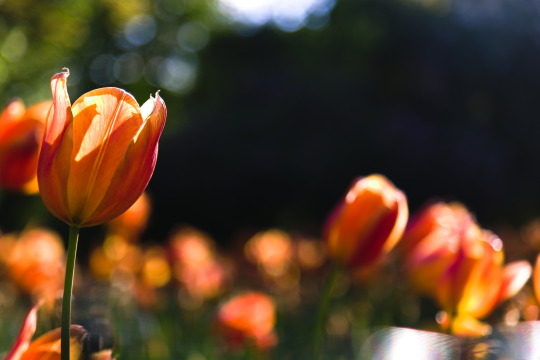
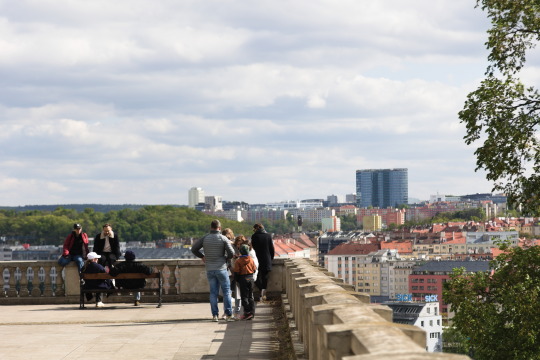
new camera (Canon R6) is a colossal upgrade, to the point where the way you are meant to use it is completely different from my old mid-range DSLR. Went out to do some photography in the park and I am going to have to spend a while fidgeting with the settings so that I can switch between the useful options faster. Menuing in higher end cameras has always been a big deal and I've used high-end cameras briefly but never for long enough to see how much.
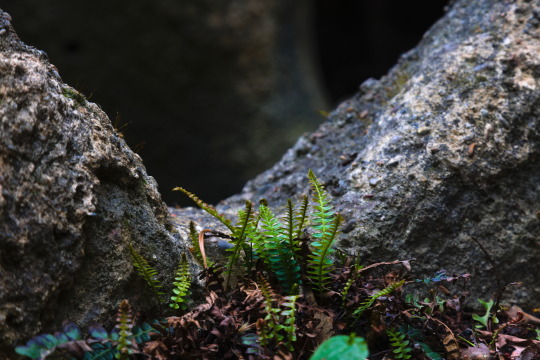
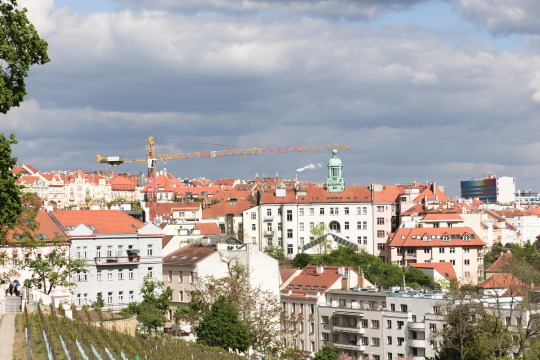
It is really nice to use a piece of equipment that is this well made. My old 600D was a "nice beginner camera" when it came out in 2011. The R6 is a professional full-frame optimized for serious work. You actually have enough dials to realistically run full manual under pressure! You have enough focus points that moving them around actually makes sense! To say absolutely nothing of the huge leaps in image processing that have happened in the decade between these two cameras.
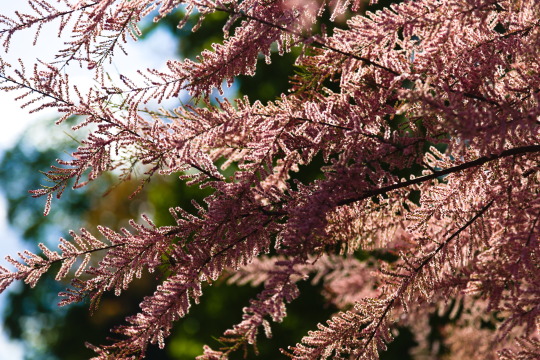
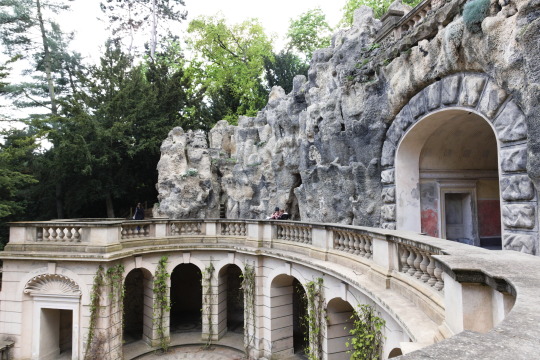
I'm adapting my old 24-105 f/4 lens, which is even older than the 600D but optics age better than bodies, it feels great to finally use all of this lens. On APS-C it gets seriously cropped to the point where it can feel kind of awkward, on full-frame you can really see why everyone loves it so much.
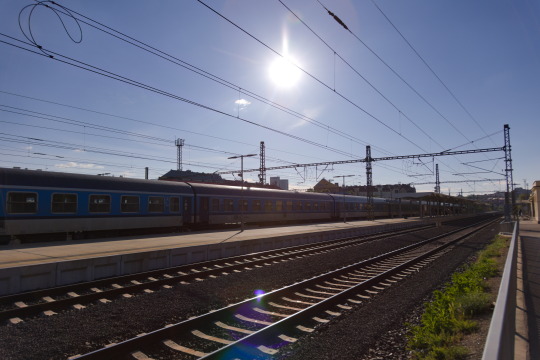
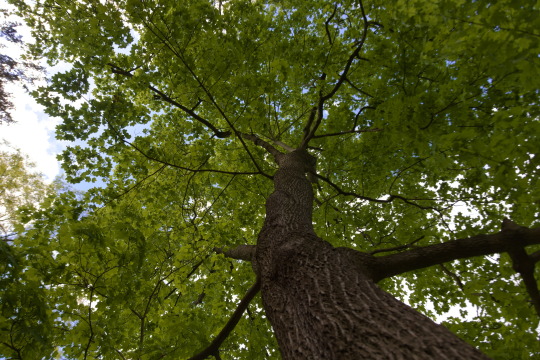
I still need some time to get used to the controls, a lot of these were shot with far too slow a shutter speed because I was not quick on the ISO draw. It'll get there.
16 notes
·
View notes
Text
Photographers in London: A Complete Guide

London is a city bursting with life, culture, and stunning backdrops, making it a paradise for photographers. Whether you're looking for a wedding photographer, a fashion shoot expert, or someone to capture the beauty of a corporate event, London offers a diverse range of talented professionals. Hiring a photographer isn’t just about taking pictures—it’s about preserving moments, telling stories, and capturing emotions in a way that lasts a lifetime.
Photography in London has evolved significantly, with a blend of traditional expertise and cutting-edge digital advancements. From historical landmarks like the Tower of London to modern skyscrapers in Canary Wharf, the city provides endless possibilities for creative shots. But how do you find the right photographer? What should you look for? And what are the best photography spots in London? This guide answers all your questions.
Types of Photographers in London
London is home to a diverse photography scene, catering to various needs and events. Below are some of the most common types of photographers you’ll find in the city.
Wedding Photographers
London weddings are magical, from grand ceremonies in historic venues to intimate garden weddings. Professional wedding photographers specialize in capturing every detail, from the vows to the dance floor, ensuring that no precious moment is missed. Many offer pre-wedding shoots in scenic locations like Hyde Park or along the Thames.
Portrait Photographers
Whether it’s a corporate headshot, a family portrait, or a modeling portfolio, portrait Photographers in London provide high-quality images tailored to each client. Many professionals operate from studios with controlled lighting, while others offer outdoor sessions in iconic locations like Notting Hill or St. Paul’s Cathedral.
Fashion Photographers
London is a global fashion hub, with photographers working on everything from editorial shoots for major magazines to brand campaigns and personal styling projects. Many fashion photographers collaborate with stylists and makeup artists, ensuring a polished and professional outcome.
Event Photographers
Corporate events, private parties, concerts, and even charity galas require experienced event photographers. They capture not just the formal moments but also the emotions and interactions that make each event unique.
Street Photographers
London’s streets are full of energy, culture, and diversity, making it a fantastic place for street photography. Many photographers specialize in capturing candid moments, from the busy markets of Borough to the eclectic crowds of Soho.
Product Photographers
With the rise of eCommerce and digital marketing, product photography has become an essential service. Whether for fashion brands, restaurants, or tech companies, product photographers in London help businesses showcase their goods in the best light possible.
Why Hire a Professional Photographer in London?
Some people wonder whether they should just use their smartphone cameras or a beginner DSLR to capture their moments. However, hiring a professional comes with significant advantages:
Expertise and Experience: Professionals understand lighting, composition, and timing, ensuring the best possible shots.
High-Quality Equipment: Professional cameras, lenses, and lighting setups make a big difference in image clarity and depth.
Post-Production Skills: A significant part of photography happens after the shoot. Editing enhances colors, removes imperfections, and ensures a polished final product.
Reliability and Creativity: A good photographer knows how to capture unique angles and perspectives, telling a story through their lens.
How to Choose the Right Photographer in London
Selecting the best photographer requires some research. Here’s what to consider:
Determine Your Needs: Do you need wedding coverage, a corporate shoot, or a personal portrait? Finding a specialist photographer is crucial.
Check Portfolios and Reviews: Always review previous work and read client testimonials to ensure quality and reliability.
Budget Considerations: Photographers in London charge different rates based on experience and services offered. Compare packages to find the best fit.
Schedule a Consultation: Meeting the photographer before booking allows you to discuss expectations, location preferences, and specific requirements.
Top Locations for Photography in London
London is full of breathtaking photography locations. Here are some of the best spots:
Tower Bridge and the Thames
For iconic London shots, this area offers stunning views, especially at sunrise or sunset.
Hyde Park and Kensington Gardens
If you’re looking for natural beauty, these parks provide serene settings perfect for engagement shoots or family portraits.
Shoreditch and Camden
Street art, quirky cafés, and unique textures make these locations ideal for urban and edgy photo shoots.
South Bank and Westminster
Big Ben, the London Eye, and the Houses of Parliament make for classic London backdrops, great for professional and casual photography.
Wedding Photography in London
Wedding photography is one of the most sought-after services in London. With the city's rich history, stunning architecture, and scenic outdoor locations, couples have endless opportunities for breathtaking wedding pictures.
Popular Wedding Venues in London
London is home to some of the most picturesque wedding venues, making it a top destination for couples. Some of the best places for wedding photography include:
The Shard – A luxurious venue offering breathtaking skyline views.
Kew Gardens – Perfect for couples who love nature and elegant floral settings.
The Ritz London – Classic and opulent, ideal for a high-end wedding.
Hampton Court Palace – A historic and grand setting for traditional weddings.
Best Styles and Trends in Wedding Photography
Wedding photography has evolved over the years, incorporating new styles and trends, such as:
Candid Photography – Natural moments captured in a storytelling format.
Documentary Style – Capturing the raw emotions of the day in a journalistic manner.
Fine Art Wedding Photography – A blend of creative compositions and elegant editing.
Drone Photography – Aerial shots of venues and wedding ceremonies.
Budgeting for a Wedding Photographer
Hiring a wedding photographer in London varies in cost based on experience and services included. Here’s a general price range:
Package Type
Price Range (£)
Basic (2-3 hours)
500 - 1,000
Standard (6-8 hours)
1,500 - 3,000
Full-Day Coverage
3,500 - 7,000
Luxury Packages
7,500+
To get the best photographer within your budget, book early and check for package deals that include engagement sessions or albums.
Portrait Photography: Best London Studios and Outdoor Spots
Portrait photography is essential for personal branding, professional headshots, and capturing memorable moments. Whether you're looking for a studio session or a scenic outdoor shoot, London offers plenty of options.
Studio Photography vs. Outdoor Sessions
Studio Photography: Offers controlled lighting, professional backdrops, and a private setting—ideal for corporate headshots and creative portraits.
Outdoor Portrait Sessions: Utilize natural light and iconic London locations, such as St. James's Park, The Southbank, or Covent Garden.
Recommended Photographers for Portraits in London
Some of the best portrait photographers in London have built a reputation for their artistic vision and attention to detail. Look for professionals with a strong portfolio and positive reviews.
Fashion Photography in London
London is one of the world's fashion capitals, and fashion photography plays a crucial role in showcasing new styles, trends, and designer pieces.
Top Fashion Photography Studios in London
Simulacra Studio – A high-end studio known for fashion campaigns.
Big Sky Studios – Used for magazine editorials and celebrity shoots.
Spring Studios – A luxurious venue for commercial fashion photography.
London Fashion Week and Its Influence
Fashion photographers in London are highly influenced by London Fashion Week, which attracts global designers, models, and brands. Many photographers work directly with designers to create high-impact editorial images that set new trends in the industry.
Event Photography: Capturing Special Moments
Event photography in London is diverse, covering everything from corporate events to concerts and private parties. A skilled event photographer ensures that every significant moment is documented professionally.
Corporate Event Photography
Corporate events such as conferences, product launches, and networking gatherings require polished and professional imagery. Event photographers in London specialize in capturing keynote speakers, audience reactions, and branding elements.
Private Parties and Concerts
For birthdays, anniversaries, and concerts, event photographers focus on candid moments, guest interactions, and performances. London’s vibrant music scene also means there’s a high demand for concert photographers who can capture the energy of live performances.
Street and Documentary Photography in London
London’s streets are filled with stories waiting to be captured. Street and documentary photographers focus on real-life moments, emotions, and social commentary.
Capturing Candid Moments
Street photographers capture the raw energy of London’s bustling areas, from the street performers in Covent Garden to the vibrant life of Brick Lane. These photographers aim to tell a story through spontaneous and unposed images.
Ethical Considerations in Street Photography
Photographing people in public places raises ethical and legal questions. In the UK, you can take pictures in public spaces, but photographers should always respect privacy and cultural sensitivity. Some tips include:
Asking permission before taking close-up portraits.
Avoiding intrusive photography in sensitive situations.
Respecting restrictions in private properties and landmarks.
How Much Do Photographers in London Charge?
Photography prices in London vary based on the type of service, experience level, and project scope. Below is a general breakdown:
Photography Type
Price Range (£)
Wedding Photography
1,000 - 10,000+
Portrait Photography
150 - 500 per session
Event Photography
250 - 2,000 per event
Fashion Photography
500 - 5,000 per session
Street Photography
Varies (Often for artistic purposes)
Always ask for a quote and discuss deliverables before booking a photographer.
The Role of Editing in Photography
Post-production plays a crucial role in photography, enhancing colors, correcting imperfections, and adding artistic effects.
Enhancing Images with Editing Software
Adobe Photoshop and Lightroom are the most commonly used editing tools.
AI-powered retouching tools help refine portraits and commercial images.
The Importance of Retouching and Color Correction
Skin smoothing and blemish removal for portraits.
Adjusting contrast, brightness, and sharpness for optimal clarity.
Color grading for a signature artistic style.
Tips for Hiring a Photographer in London
When hiring a photographer, follow these tips to ensure a smooth experience:
Ask for a Portfolio: Review their past work to assess style and quality.
Discuss Deliverables: Understand what’s included (raw images, edited photos, albums, etc.).
Check Online Reviews: Look for testimonials on Google, social media, or their website.
Compare Pricing: Get multiple quotes and compare packages.
Understand Copyright and Usage Rights: Ensure you have permission to use the images as needed.
The Future of Photography in London
Photography is evolving rapidly with advancements in technology and creative trends.
Emerging Trends in Digital Photography
AI-Powered Editing: Automated enhancements using artificial intelligence.
360-Degree Photography: Interactive images for real estate and virtual tours.
Smartphone Photography: Professional-quality photos taken with mobile devices.
The Impact of AI and Smartphone Photography
While AI tools and high-end smartphones are improving photography accessibility, professional photographers continue to offer unmatched creativity, storytelling, and technical expertise.
London is a city where photography thrives, from weddings to corporate events and street photography. Finding the right photographer depends on your needs, budget, and preferred style. Whether you're hiring a photographer for a once-in-a-lifetime event or a personal project, investing in a skilled professional ensures high-quality, timeless images.
Contact Info: Email: [email protected] Tel: +447984274125 Follow US: https://www.instagram.com/snapvision.studio/ https://www.facebook.com/people/Snapvision-Studio/100091503722115/ https://api.whatsapp.com/send/?phone=%2B4479844274125&text&type=phone_number&app_absent=0 https://www.youtube.com/channel/UCaBvWrFt4hoO0eOjA_GfQ6w
2 notes
·
View notes
Text

#dslr photography#canon dslr#media studies#college work#beginner photographer#canon photography#photography#isa ౨ৎ
1 note
·
View note
Note
I've been inspired (in no small part due to your photos) to get a camera and start doing some photography. Do you have any tips for a beginner? Good cameras to get, things you wish you had known, that kind of thing? Your photos look so good!
Heyo! Welcome to the photography world! I'd glad I could inspire you a bit.
A few tips I've learned recently:
For buying gear, the actual camera doesn't really matter for beginners. Any camera will take good photos, even old ones.
If you're feeling sociable, go to a local camera store and try out some used camera. Pick one that feels good and fits your budget. Brand doesn't matter.
Last, if you get a camera with interchangeable lenses, spend more on a lens than the body. High quality lenses will continue to be great on newer, better camera bodies & make cheap bodies take amazing photos.
I've got two posts for more tips, check 'em out!
Okay, we've made it to the bottom of the post. My starter camera recommendation has always been a Panasonic G or GX body (GX1, GX7, G7, GX85, or even a G9 or GX9 if you're feeling very spendy) + a Panasonic 25mm f/1.7 lens, which is still one of my favorite lenses of all time.
Prefer a mirrorless camera over a DSLR. DSLRs are cheaper, but harder to learn. You can adapt DSLR lenses to mirrorless if you like using cheaper DSLR lenses.
9 notes
·
View notes
Note
I LIKE YOUR PHOTOS
how long have you been doing film photography? Any tips for beginners? I really want to get a film camera but the decision paralysis is toooouuuugh.
i uhhh
about two weeks?
as for recommendations: do you have a DSLR already? if so, get a body compaitble with the lenses you have. Shoot black and white first, developing is simpler.
4 notes
·
View notes